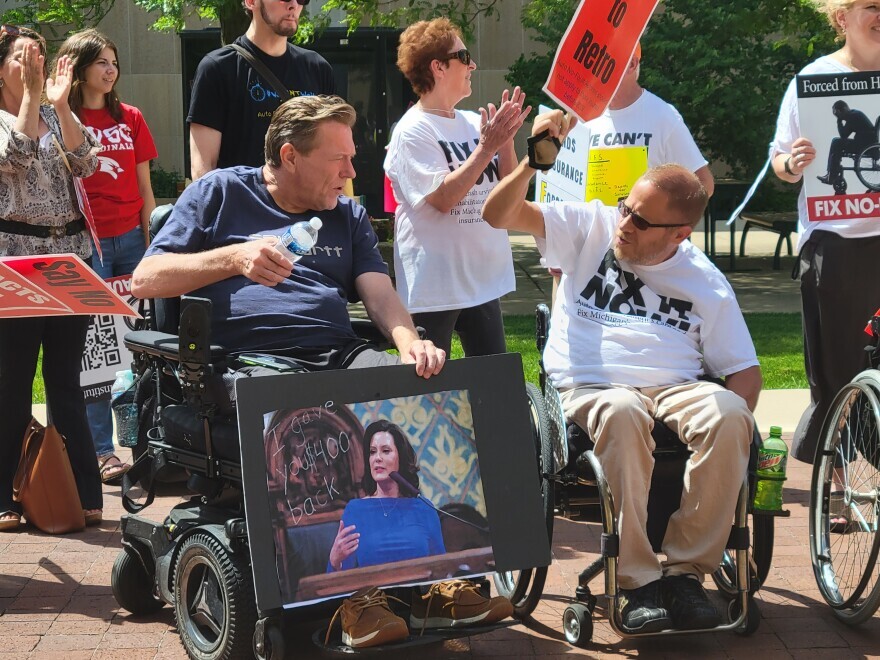A handful of summer protests against the impact of Michigan’s 2019 auto insurance changes kicked off Tuesday in Lansing.
The law capped what care providers could charge for reimbursement at 55% of their previous rate and limited the number of billable hours for at home treatment.
Crash survivor David St. Amant said that has made it harder for him to find care he needs.
“[Therapists] and other such professionals are either going out of business or having to lessen their hours so they can pick up other work,” St. Amant said.
Since the changes took effect a little over a year ago, a small group of demonstrators has frequently gathered at the state Capitol many weeks. Tuesday afternoon, they were across the street from Governor Gretchen Whitmer’s office.
Peggy Campbell leads the Facebook advocacy group coordinating the efforts.
“We’ve always felt that the governor signed the bill and she’s really the one who made it happen,” Campbell said Tuesday.
Whitmer has hailed the 2019 no-fault law as a bi-partisan win. Earlier this year, she celebrated $400 refund checks issued using money described as surplus from the Michigan Catastrophic Claims Association fund.
The governor has also publicly stated she’d work with lawmakers to fix issues with the 2019 auto insurance law.
“It’s important that we explore all ideas to protect people’s care while maintaining the savings that the law has delivered for Michigan drivers,” spokesperson Bobby Leddy said in a written statement.
But evidence that the law has delivered savings is scant, and legislative leadership hasn’t shown any willingness to support changing the law yet.
In the meantime, Whitmer’s administration is pointing to a directive she gave to the state Department of Insurance and Financial Services to hold auto insurers accountable.
“We are closely monitoring the Legislature’s engagement on this issue while working to ensure that auto insurers take responsibility for assisting survivors with securing appropriate care,” a statement from a department spokesperson read.
The agency reiterated it’s available to take complaints over the phone, through email, or online.
But Campbell, who estimated that thousands of people have lost necessary care as a result of the new law, said the department has served as more of a speed bump to survivors than an ally.
“The forms that you fill out are so complicated and so convoluted, many people, especially those who are injured with either spinal cord or brain injuries just cannot fill those out,” Campbell said.
Military veteran and crash survivor Laszlo Szalay shares that sentiment. He said he called 64 health care providers across Livingston, Oakland, Macomb, and Jackson counties before being turned away because he was a car-crash survivor. Now he relies on a network of friends for help.
“These folks have jobs. They don’t have the time to watch me all the time. I don’t know what I’m going to do,” Szalay said. “I was a 46-year-old guy who was working full time, professor, and I worked for the CIA at the time. I got injured, I lost everything. Now I’m just worried what’s tomorrow going to bring me."









